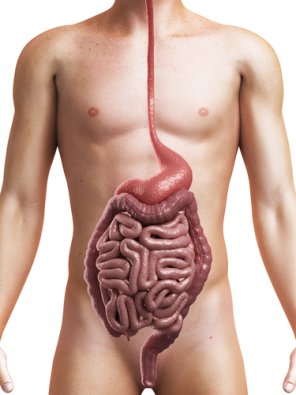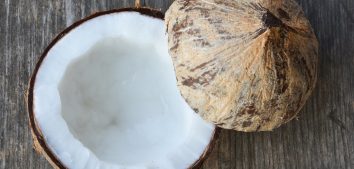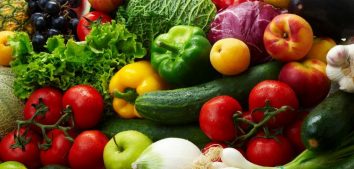
Intestine part. II road to balance
Recently I wrote series of short but succinct posts about intestine. Intestine part. I and the importance of intestinal flora – I really like this topic 🙂 and I will certainly further develop this subject.
As already mentioned, many diseases are treated with the common methods without realizing that they are the result of ill intestines. At the top of this infamous list is obesity.
Often we are looking for a way to deal with excessive pounds using a variety of diets, but it will not bring long-term results if it is caused by abnormal intestinal flora. Recent studies have shown that it is responsible for feelings of hunger and digestion.
The balance of bacterial flora can be disrupted in a few ways:
We use non-steroidal anti-inflammatory drugs, antibiotics or birth control pills
We eat a lot of cereal, legumes, processed carbohydrates, fatty acids omega-6 and trans fats
We catch frequent infections
Stress
We have the vitamins and minerals deficiencies
Not enough sleep
Speaking about the condition of our intestines Candida yeast can not be ignored. They are managing their leftovers from food and feed on simple sugars remaining in fecal weight without doing any harm and without causing disease. They are referred to as yeast, but under the right conditions they can sprout and develope root from which the mycelium grows. Together with bacteria they are the natural microflora of the human gut. In normal intestinal microbes are constantly competing for access to food, so that spontaneously maintains the balance between them quantitative (homeostasis). But it is easy to shake it in favor of yeast providing more simple sugars, antibiotics or antibacterial.
These yeasts are often confused with the Candida fungus, which are parasites, pathogens, and use any weakening of the immune system of the host to grow in the tissues, damaging them. The fungus produces the fungal infections, which often is manifested by inflammation, they do not feed on it but residual substances which remain after the collapse of the cells. Instead, they become an excellent food for dangerous bacteria like staphylococcus and streptococcus.
If the Candida yeast finds the right ground it starts root and grow out fungus, which after some time also produce spores. These however are organisms able to live independently and depending on the conditions – they can sprout in the ground turning into fungus, or to live and reproduce by budding like yeast. Candid Fungi and Candida yeast are different in appearance, shape, diet and reproduction, as well as the environment in which they live. The first of them are actually useful but the Candida Fungi is a dangerous disease-causing parasites. Clarification of this issue is extremely important because of the determination of what we have to treat – or cure for the presence of Candida in the colon whether caused by fungal organism.
We know that Candida can be found in the large intestine as a normal part of the environment, and their presence in the stool indicates only that the yeast Candida are in place, which of course has nothing to do with the disease.
However, it is important to control the growth of yeasts and do not allow an excessive amount of sugars in the large intestine.
For this purpose, it is worth to:
- help them to be absorbed already in the small intestine by careful chewing and biting of food, which will allow digestion of starch products and fruits
- reduce the complex sugars and starch products enabling their exact digestion into simple sugars and their absorption in the small intestine
- take care of the health of the stomach, small intestine and digestive organs, because if they do not work properly, simple sugars go into the colon
- It is much easier to prevent disease than to treat them, and for this purpose I suggest from now on for you to begin to apply certain rules and avoid dangerous yeast infections of the colon:
- reducing the consumption of excessive amounts of simple and complex sugars
- bite the food carefully before swallowing
- avoidance of drugs that reduced the amount of gastric acid secretion and for the reduction of acidity
- avoiding antibiotics, sulfonamides and chemical pharmaceutical preparations, chemotherapy, and radiotherapy, hormonal meds and hormonal birth control pills
Consult your doctor if you observe the following symptoms of yeast infections in your intestine:
- strong gas and bloating around the abdomen
- bubbling in the gut
- typical stool, at the start a bit hard,feeling clogged, and then relaxed turning into almost watery stinking diarrhea
- delicate stomach, a reaction after eating certain products manifested by single, stinging, loose stools or only mild diarrhea
- unpleasant, periodically appearing vague urge to stool, occurring shortly after defecation, which can persist for several hours.
We also see other highly dangerous intestinal disorder, or systemic mycosis. Initially hidden under the hood of other diseases such as neurosis, allergies, reflux, nail fungal diseases, and others. As a result, a state of the weakening of the immune system, in which it ceases to perform its protective role against the development of fungal infection. The disease can gradually include additional internal organs of the body. It is in such a state of weakness harmless yeast Candida becomes an aggressive, pathological fungus-parasite. The treatment of systemic fungal infection is long and requires many sacrifices, but to cure this insidious and extremely dangerous disease is possible!
To avoid this type of disease, remember about:
- proper diet, which excludes harmful factors
- include coconut oil and butter (both have anti-inflammatory)
- probiotics and prebiotic in the diet, about which I wrote HERE
- increasing the production of hydrochloric acid (lemon juice or cider vinegar before a meal at a ratio of 1-2 tablespoons per cup of water)
- drinking the magical broth RECIPE HERE
- careful chewing of food, eating without haste
- not combining carbohydrate and protein
- not drinking after the meal
- moderate physical activity
- enough sleep










Comments No Comments
Join the discussion…